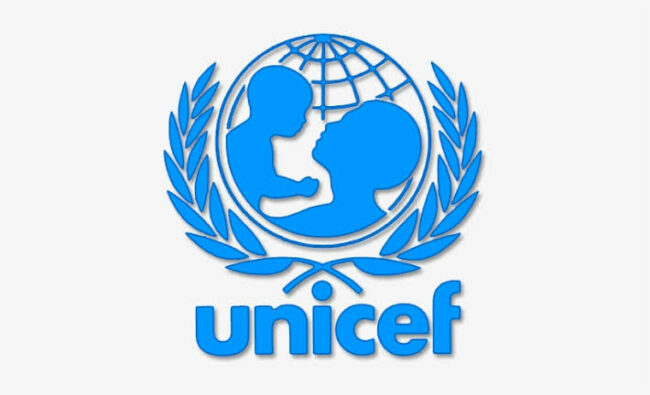
THE United Nations Children’s Emergency Fund (UNICEF) has warned that the recurrent cholera outbreaks in Nigeria are critically affecting children and the population at large.
The Nigeria Centre for Disease Control and Prevention, NCDC, had in a public advisory on Thursday, alerted on increasing cholera cases nationwide with 30 deaths, 1,141 suspected and 65 confirmed cases reported from 96 LGAs in 30 states.
10 states that contributed 90 percent to the burden of cholera included Bayelsa, Zamfara, Abia, Cross River, Bauchi, Delta, Katsina, Imo, Nasarawa and Lagos.
Giving update on the figure, the Director, Sub-National Support Department, NCDC, Sebastian Yennan, on Saturday said the number of suspected cases has increased to 1,213 with 74 confirmed.
In a related development, the Oyo State government on Saturday alerted the public on two suspected cholera cases discovered at a private hospital in the state.
This development made the Ogun and Oyo state governments announce precautionary measures calling for more vigilance to prevent the spread of a potential cholera outbreak.
Responding to the cholera outbreak in Lagos and other parts of the country, the Chief of Lagos UNICEF Field Office, Ms. Celine Lafoucrier in a statement said that children faced substantial health risks, particularly those under five, who were prone to severe dehydration and higher mortality rate.
She urged the government to focus on the provision of clean and risk-free water to prevent the spread of cholera in the country.
According to her, despite the state government’s efforts to provide water to its population, the current outbreak demonstrates the need for an urgent government focus on ensuring the water provided to the population is clean and risk-free.
“Addressing the challenges of cholera outbreaks requires a deliberate focus of state policies. This includes provision of high-standard water and sanitation facilities as well as strengthened healthcare systems capable of responding to the demand in times of outbreaks.
“There should be campaigns on cholera prevention to protect children and the population at large,” she said.
Lafoucrier said that good water and sanitation infrastructure play a crucial role in reducing disease outbreaks, such as cholera, which causes an estimated 100,000 deaths annually.
“Water, sanitation, and hygiene (WASH) interventions are fundamental in preventing and responding to cholera epidemics.
“Safe water supplies, hygienic sanitation, and effective water management are key elements in this effort. Ultimately, preventing cholera centers on good sanitation and hygiene practices.”
Speaking on the reported cases in Oyo, the State Commissioner for Health, Dr Oluwaserimi Ajetunmobi who visited the hospital where the two patients where they were receiving treatment, disclosed that the cases were male workers at a construction site in Lekki Peninsula from Lagos State.
She noted that there is no cause for alarm as the ministry and other partners are on top of the situation reiterating the response efforts of the state government through the ministry to ensure that the state does not record casualties from the cholera outbreak in Lagos State.
According to her, the response efforts include the deployment of disease surveillance and notification officers of the local government areas, promotional jingles in English and Yoruba running in different media houses, and the immediate inauguration of the Cholera Technical Working Group.
She also added that the IDC Olodo is put into active mode for isolation and management while surveillance rangers at the LGA level are intensifying surveillance activities and re-posting cholera case definitions on the platform of community informants for updates, awareness and sensitization of the gatekeepers and other well-established community structures.
She urged that anyone with the symptoms of cholera such as nausea, profuse vomiting, and fever should not resort to self-medication but present at the nearest healthcare facility for immediate treatment.
The Commissioner, therefore, appealed to all to be safety conscious, drink water only from clean sources and practice good personal hand hygiene by frequently washing hands with soap and water.
In Ogun, the Special Adviser to Governor Dapo Abiodun on Media and Strategy, Mr Kayode Akinmade, in a statement, expressed the governor’s concern on the development.
Akinmade said precautionary measures had been put in place, especially as the Sallah holiday approaches.
He reeled out the measures as including the directive about toilets, stipulating that all houses must have toilets.
“We have to take action in view of the need to protect the people in the state, considering the proximity to Lagos and the degree of interactions between the two states.
“Any house without a toilet should identify a room to be converted to a toilet. Residents are given three to six months of grace for compliance.
“All petrol stations must have functional public toilets with running water as part of their corporate social responsibilities.
“All garages, parks, markets and mechanic villages must have functional toilets with running water. All schools (public and private) should have public toilets with running water,” he said.
Akinade added that in addition to these measures, residents are advised to drink only safe water which is either boiled or chlorinated.
He also advised proper hand-washing with soap after each toilet visit and before handling food, just as all fruits and vegetables should be washed thoroughly with safe water.
ALSO READ: Eid-el-Kabir: Your sacrifices will not be in vain, Tinubu tells Nigerians
Source: